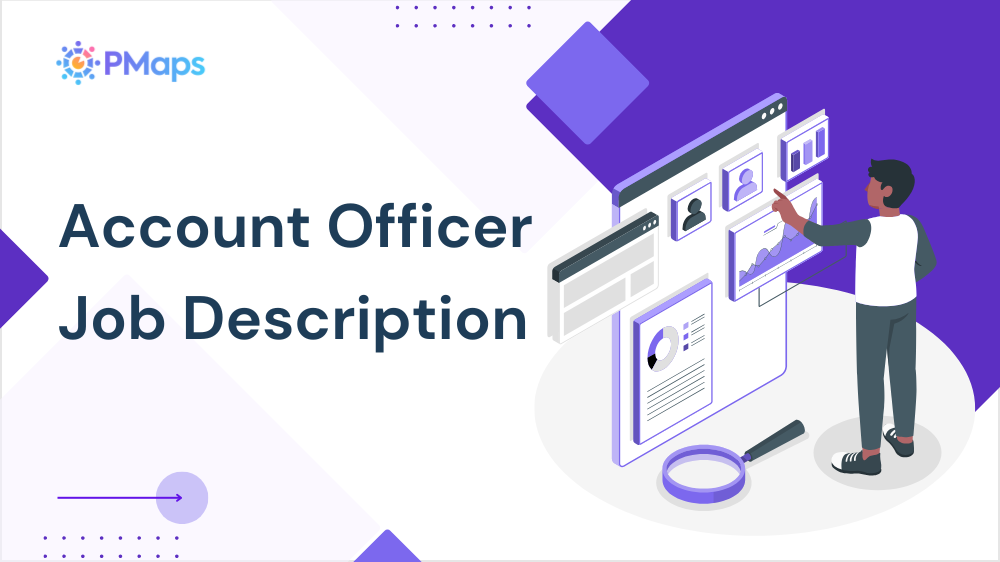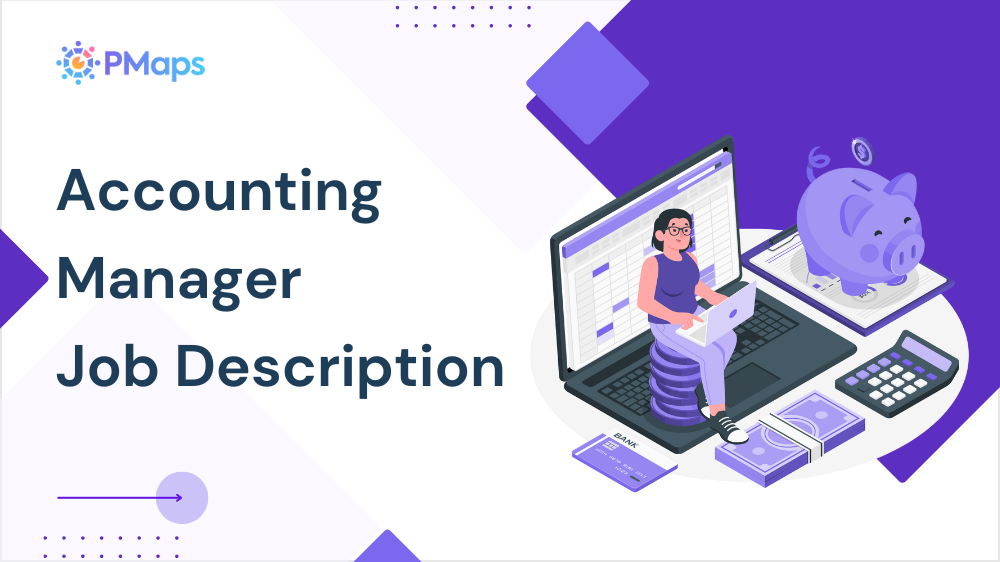
An account officer ensures that every financial entry reflects institutional clarity and client accountability. This account officer job description is designed for finance-led roles that combine ledger oversight, client transaction reconciliation, and internal reporting alignment.
Focused on maintaining active books, monitoring payment cycles, and supporting finance operations, this account officer description suits organizations that require real-time account tracking, billing oversight, and internal control support. Unlike junior clerical roles or pure accounting positions, the account officer bank job description includes responsibilities tied to external financial communication, system updates, and compliance coordination.
Account Officer Duties and Responsibilities
Account officers act as the bridge between financial data and organizational execution. Their responsibilities involve maintaining client accounts, processing transactions, and supporting internal audits—all while ensuring ledger accuracy and account integrity across multiple reporting cycles and compliance checks.
- Maintain up-to-date client account records in accordance with financial policies.
- Reconcile bank statements, receivables, and payment ledgers monthly or as needed.
- Monitor outstanding balances, issue payment reminders, and track collections.
- Assist in preparing account summaries for management reporting and client presentations.
- Verify transaction documentation, contracts, and receipts for compliance.
- Support internal audits through organized records and error-free reconciliation data.
- Process account adjustments, refunds, or corrections as authorized.
- Liaise with clients regarding invoices, billing disputes, or payment confirmations.
- Coordinate with accounting, finance, and compliance teams on record-keeping standards.
Objective of the Account Officer Role
The account officer role exists to manage client accounts with accuracy, timeliness, and compliance. By reconciling records, monitoring payments, and supporting audits, this role strengthens financial clarity, client coordination, and operational reporting across the broader finance ecosystem.
- Maintain active, balanced accounts across payment and billing cycles.
- Ensure documentation supports reconciliation, audit readiness, and client resolution.
- Track receivables and minimize outstanding dues through systematic follow-up.
- Enable error-free reporting by providing verified transaction data.
- Align account activity with internal control and policy standards.
Qualification and Skill Requirements for Account Officers
Account officers are expected to combine client-side communication with finance-side discipline. These qualifications ensure readiness for handling transactions, reconciliations, and ledger-based reporting with control and consistency.
- Bachelor’s degree in Accounting, Finance, or Commerce.
- 2–4 years of experience in account management, finance operations, or billing control.
- Proficiency in MS Excel, Tally, SAP, or ERP-based account platforms.
- Working knowledge of account reconciliation, ledger tracking, and collections follow-up.
- Understanding of regulatory compliance and documentation protocols.
- Strong numerical accuracy and attention to recurring financial cycles.
- Communication skills for client-facing account coordination.
- Familiarity with audit-prep formats and reporting schedules.
Perks and Benefits of the Account Officer Role
Account officers work at the core of financial accountability, combining structured workflows with client-facing insight. The benefits below reflect the value, exposure, and professional consistency that the role provides within institutional finance functions.
- Defined responsibility scope across accounts, billing, and reconciliations.
- Direct coordination with finance, audit, and client servicing teams.
- Skill-building in ledger systems, ERP tools, and compliance documentation.
- Career growth opportunities into senior finance, credit control, or account management roles.
- Incentive-linked recognition tied to error-free reporting and collection success.
- Structured onboarding, SOP access, and ongoing procedural training.
- Stability in finance operations teams with predictable reporting cycles.
Tips for Employers to Craft an Effective Account Officer JD
A well-structured account officer job description improves application relevance and reduces screening time. By specifying tools, scope, and reporting depth, employers can attract professionals who understand financial accuracy, client account integrity, and cross-team coordination within institutional finance settings.
- Define the account types handled—receivables, billing, collections, or reconciliation.
- Mention tools or platforms—Excel, SAP, Tally, or in-house ERP systems.
- Clarify reporting structure—Finance Manager, Accounts Head, or Business Controller.
- Avoid overlapping with general accountants—focus on account maintenance, not ledger closure.
- Include compliance expectations—KYC checks, audit support, or transaction verification.
- Indicate external coordination—clients, vendors, auditors, or cross-department teams.









